supremecourt
Latest

Ex-Uber employee fights for workers’ right to pursue class-action
Susan Fowler, the ex-Uber engineer who called out the company's sexual harassment problem in a blog post earlier this year, has now focused her attention towards the Supreme Court. With her attorney, she has filed an amicus brief in support of workers involved in three consolidated cases that will be heard by the high court. The cases all center on whether companies like Uber should be able to stipulate that employees are barred from joining class-action lawsuits against the company and instead must pursue resolutions through private arbitration.

India’s privacy ruling could disrupt its biometric society
A landmark judgement has ruled that Indian citizens have a fundamental right to privacy, despite the country's vast biometric identification scheme. In a case bought forward by opponents of the government's Aadhaar biometric program, Chief Justice J.S Khehar said privacy was "protected as an intrinsic part of Article 21 that protects life and liberty". The unanimous verdict from the nine-judge bench overturns two previous rulings by the Supreme Court which said privacy was not a fundamental right.
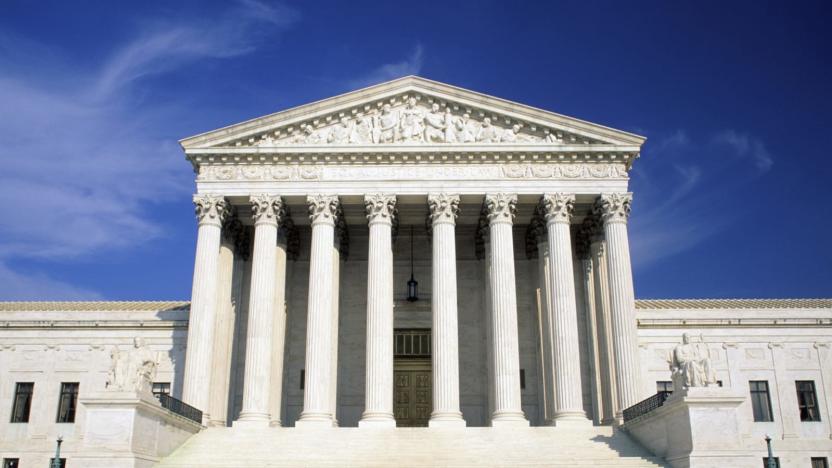
Tech companies want user data protected from warrantless searches
Late last night, a bevy of tech companies -- including Apple, Google, Verizon, Twitter and Facebook -- filed a friend-of-the-court brief with the US Supreme Court in the case of Carpenter v. United States. Their specific interest is in protecting personal user data from unreasonable searches and seizures by law enforcement.
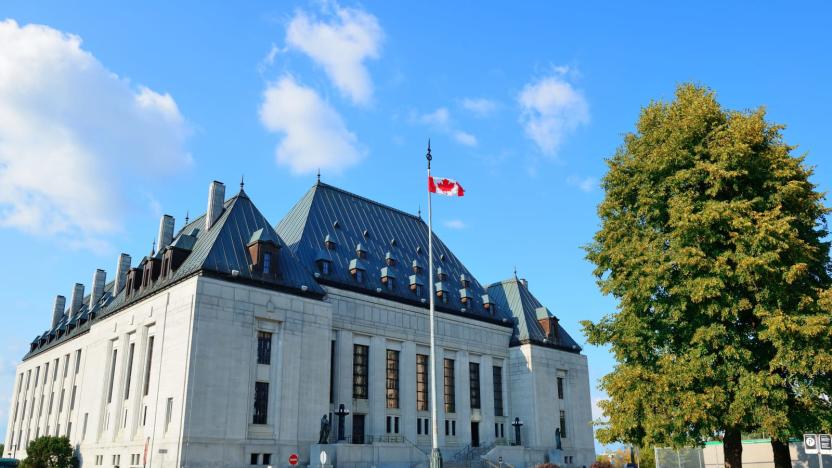
Canada says court order to pull Google results applies worldwide
In 2012, Canadian manufacturer Equustek asked Google to remove search results relating to a court case against Datalink, a distributor of the former company's network devices. While Google complied with the request, it only did so in Canada itself. The Supreme Court then ordered Google to remove search results pertaining to the issue in all countries Google operated in. Google appealed the decision, arguing that the order went against its own freedom of expression. The court has now rejected the company's argument. The majority decision says that Canadian courts may in fact grant injunctions that compel compliance anywhere in the world.

Supreme Court rules sex offenders can use social networks
It's understandable why governments would want to keep sex offenders away from social networks -- you don't want predators messaging their potential targets. Is an outright ban taking things a step too far, though? The US Supreme Court thinks so. As part of a ruling in a case where a college student preyed on an underage girl, the court has struck down a North Carolina law preventing sex offenders from visiting social internet sites that children might frequent. Simply speaking, the law was so broad that it violated free speech rights, disconnecting offenders from modern life.
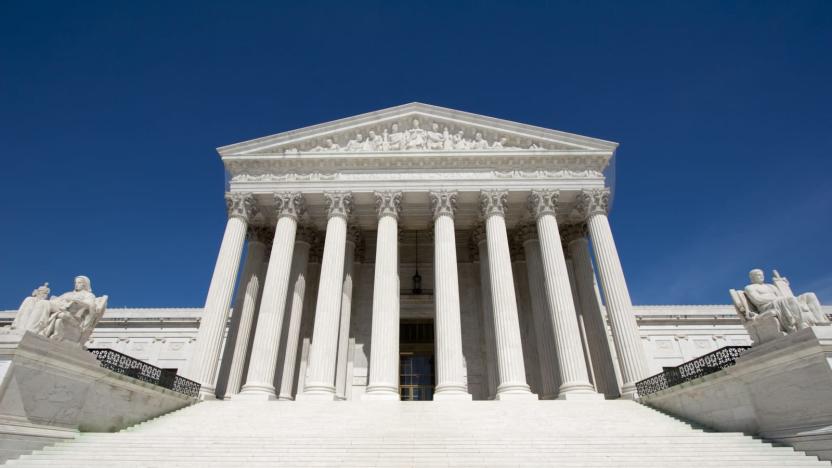
Supreme Court to decide if cellphone location data requires a warrant
The ongoing battle between mobile technology and law enforcement is headed to the Supreme Court. Next term, the justices will decide whether a warrant is required for police to track a suspect through their cellphone records.
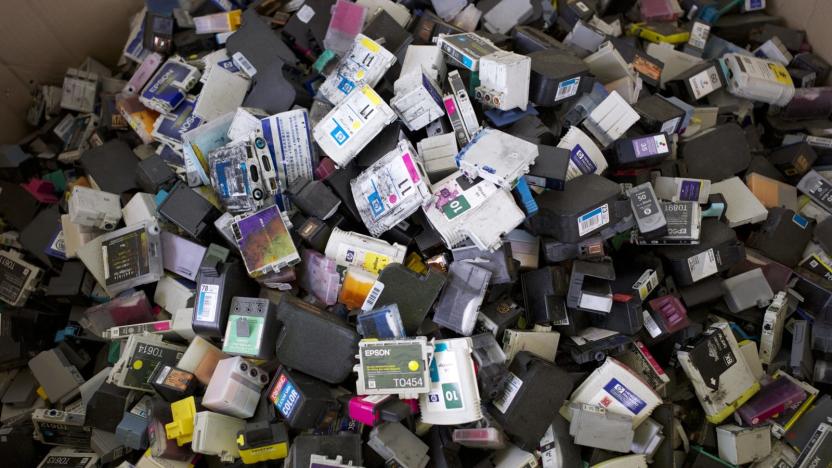
Supreme Court decision lifts ownership rights over patent law
In a win for anyone who has ever been frustrated by overpriced ink, the Supreme Court ruled today (PDF) that printer maker Lexmark can't sue companies that refill old cartridges and sell them at a discount. More specifically, the court ruled that Lexmark gave away its patent rights to the cartridges (and their single-use microchips) as soon as it started selling them. While the case may seem narrowly focused, digital rights groups are hailing it as a win for consumers in general and a decision that could affect everyone's right to repair their own devices.

Supreme Court shuts down location loophole for patent suits
Patent trolls have had it pretty easy lately, especially in East Texas. A 2016 ruling by the US Court of Appeals for the Federal Circuit allowed patent suits anywhere a defendant company's products are sold. The Eastern District of Texas has become a favorite of high-tech patent lawsuits thanks to its rapid litigation timetable and plaintiff-friendly rulings. The US Supreme court today may have put an end to such free-range suit practices, however. The justices involved in the patent case between TC Heartland and Kraft Foods ruled unanimously that patent suits can only be filed in courts located where the target company is headquartered.
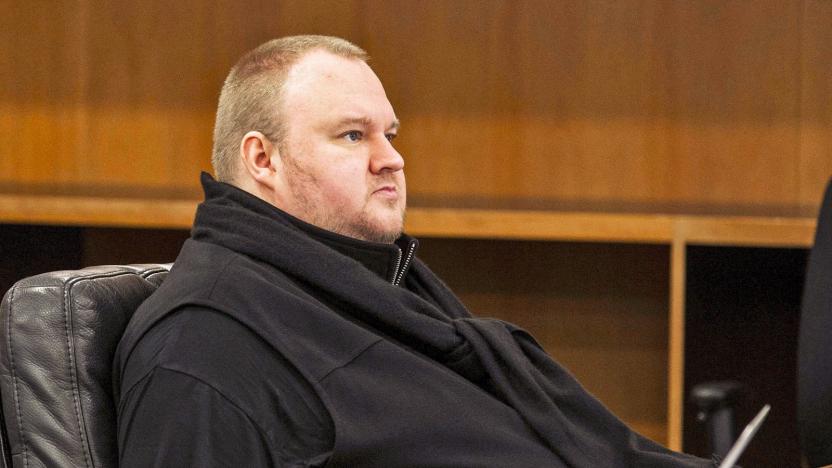
Kim Dotcom asks the Supreme Court to hear him out
Kim Dotcom, the founder of file-sharing website Megaupload, is taking his case to the United States Supreme Court. He's petitioned the highest court in the land to overturn a ruling allowing US authorities to keep $75 million in assets seized during a 2012 raid on Dotcom's house in Auckland, New Zealand.

Supreme Court discusses sex offender's social media ban
The case of a man from North Carolina brought before the Supreme Court has resulted in an interesting discussion on whether sex offenders should be banned from social media. Lester Packingham was convicted for having sex with a 13-year-old girl in 2001 and was arrested again in 2010 for signing up for a Facebook account and posting on his wall. While his post was harmless -- it only said "Praise God, I didn't receive a ticket, Praise Jesus, thank God." -- a North Carolina law makes it a crime for sex offenders to use Facebook, Twitter and other social media websites.

Trump to announce his SCOTUS pick tonight via Facebook Live
Donald Trump will announce his nominee for the vacant Supreme Court Justice seat tonight via Facebook Live. The stream begins at 8pm Eastern via the POTUS Facebook channel. As CNN reports, both candidates (Neil Gorsuch and Thomas Hardiman) have apparently been told they're Trump's favorite for the lifetime seat. Apparently, there will be Apprentice-style staging for the announcement: one prospect will walk away without the job while the world watches. Political theater like this is nothing new for Trump, but turning the presidency into a reality show is sure to ruffle some feathers.

Supreme Court sides with Samsung over Apple patent penalty
The Supreme Court ruled that Samsung's violation of design patents made by Apple can only involve components, not entire products. This could mean a severely reduced penalty that the Korean company will have to pay... and a rare bit of good news for the troubled company.

Calvin Klein thinks Apple was paid fairly in Samsung patent case
The exhausting brawl between Apple and Samsung over patents simply refuses to die the horrible, gruesome death it deserves. Samsung is the more bloodied, you may recall, having paid Apple a $548 million settlement for violating a bunch of patents (not that Cupertino is done squeezing money from the Korean company). That big payout is due to be reviewed and potentially reduced by the US Supreme Court, however, with Samsung arguing it shouldn't have had to hand over every cent of profit it made on devices that were found to specifically infringe Apple design patents. Naturally, Apple disagrees, and now it's got none other than Calvin Klein fighting in its corner.

Supreme Court approves feds' request for greater hacking powers
The FBI found an ally in the Supreme Court in its quest to expand its hacking powers. Today, the highest federal court in the US has agreed to the changes made to Rule 41, giving judges the authority to approve remote access to suspects' computers outside their jurisdiction. Under the original Rule 41, a judge in, say, New York can only authorize hacking into a suspect's computer in New York. But the amended rule means that same judge in New York can approve the feds' request to hack into a computer in Florida, Alaska, or anywhere else, really.
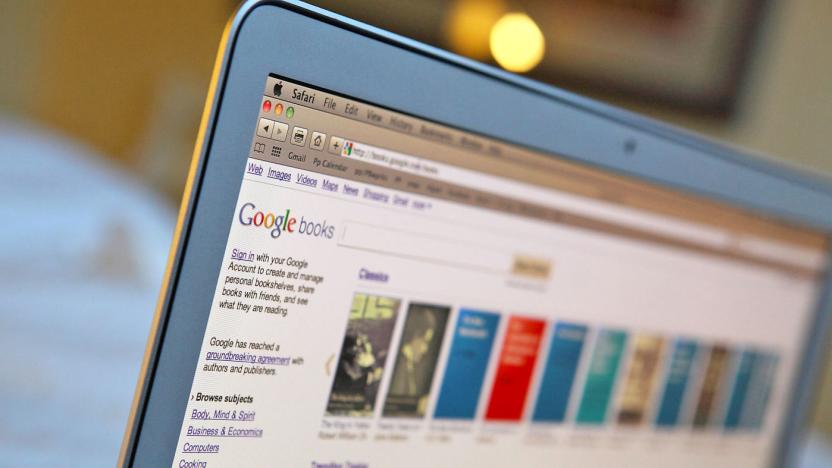
Google won't face Supreme Court fight over book scanning
After many years, Google's efforts to scan out-of-print books for online searching is officially in the clear. The US Supreme Court has declined to hear an appeal over Google's victory in a legal dispute wit the Authors Guild, effectively determining once and for all that the book scanning (which focused on excerpts) represents fair use rights. The Guild had contended that Google's move violated copyright and potentially hurt profits, and would have had the internet giant pay damages.

Run for president in Sandra Day O'Connor's educational game
If you think it's too late to change careers, consider 86-year-old former senator and Supreme Court justice Sandra Day O'Connor, who recently became an app developer. Her educational company iCivics has launched a new version of Win the White House, a timely game that teaches kids how presidential campaigns work. Unlike the real-life Jerry Springer-like primary, the game teaches pupils how to run civilly on issues from gun control to alternative energy. "A quarter of students cannot demonstrate a proficient knowledge of how our government works," Day O'Connor told the New York Times.
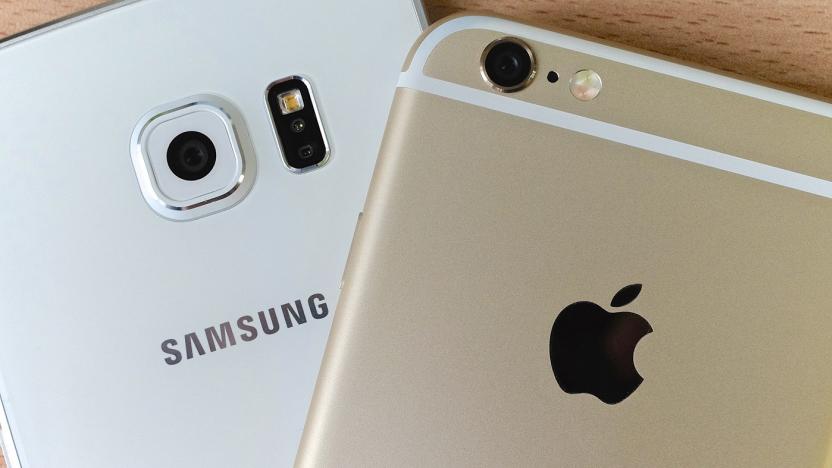
Supreme Court will review Apple damage claims against Samsung
If Apple wants Samsung to cough up a lot of money for allegedly violating its patents, it's going to have a real fight on its hands. The US Supreme Court has agreed to review the damage claims in Apple's design patent lawsuit against Samsung, giving the Korean firm a chance to reduce the sizeable payout it'd otherwise have to make. This doesn't guarantee that Samsung will get what it wants, and this will likely postpone (if not cancel) an imminent retrial over the damages. Also, it's notable that the review won't challenge the patents themselves.

Apple e-book price fixing case won't reach the Supreme Court
Apple's last shot at avoiding a $450 million e-book price fixing settlement just went out the window. The US Supreme Court has declined to hear Apple's challenge of an appeals court decision that left the company on the hook for allegedly conspiring with publishers to raise digital book prices. The decision won't have much of an impact on Apple's day-to-day business (the court-approved antitrust monitor is no longer watching it like a hawk). Still, it's a symbolic loss for a tech giant that maintains it did nothing wrong.

Supreme Court decision may derail Obama's emissions pledge
At the Paris climate talks, President Obama pledged that America, historically the world's biggest polluter, would reduce its carbon emissions 32 percent by 2030. However, the Supreme Court has ruled that it will not enforce his Clean Power Plan, now under the jurisdiction of the Environmental Protection Agency (EPA). The court voted along party lines, with the five conservative judges ruling that states don't have to start making emissions cuts until lower courts rule on pending challenges.

Supreme Court won't touch Google's fight with Oracle over Android
When Oracle got a second chance at making Google pay for using Java programming kits in Android, the folks in Mountain View raced to the Supreme Court in hopes of stopping that renewed lawsuit dead in its tracks. Unfortunately for Google, that's not going to happen -- the Supreme Court now says that it won't tackle the case. The move kicks the issue back to a lower court, and denies a once-and-for-all decision on the extent to which companies can copyright their code. This doesn't necessarily mean that Google will be on the hook for Android, but the company is going to face a tougher fight than it wanted. [Image credit: CSA Images/Getty Images]










